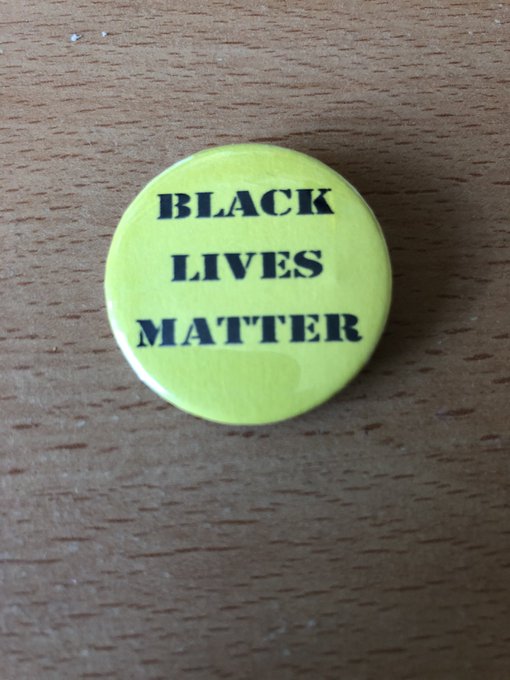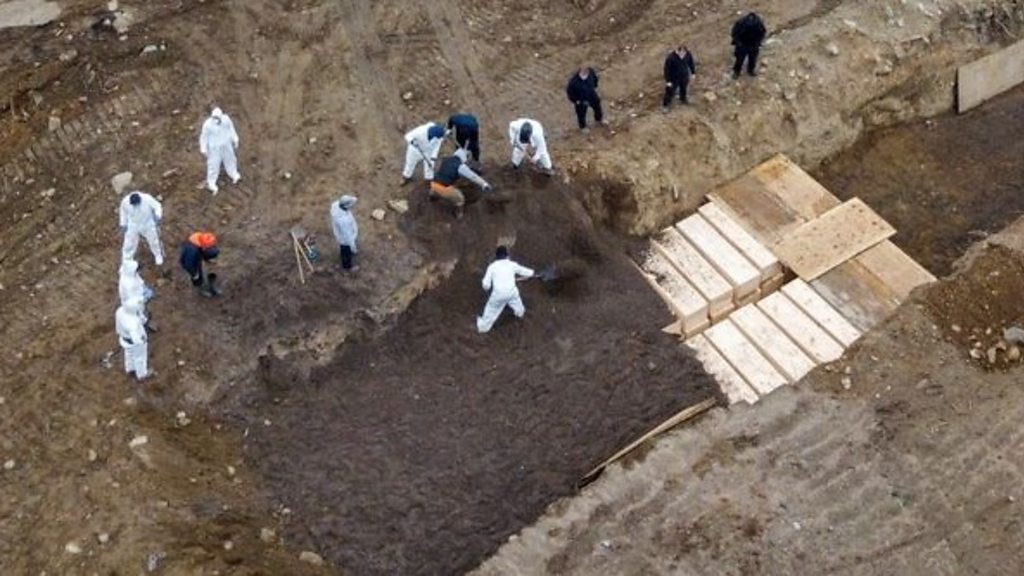 The sociologist Stuart Hall believed that when a government was in crisis the media created moral panics. In his seminal classic Policing the Crisis Hall looked at the British newspaper's obsession with mugging, focusing on the role of young black men in this criminal act. The papers would report daily on this causing a moral panic and creating folk devils of young black men. They didn't report on the reason as to why young black men may turn to a life of crime. That was much too complicated, instead of looking at the crisis capitalism was in in the late 1970s both in Britain and world wide they focused on the ethnicity of these young men. Further investigation would uncover poverty, marginalisation in school and the job market. In short there were no opportunities for these young men. Like their white working class peers they had little hope of a job let alone a profession. But to report on that the papers would have bored their readers but more importantly they would have chipped away at the deeper problems of our society. And they would have had to focus on the fact that the British government had lost control of the economy.
The sociologist Stuart Hall believed that when a government was in crisis the media created moral panics. In his seminal classic Policing the Crisis Hall looked at the British newspaper's obsession with mugging, focusing on the role of young black men in this criminal act. The papers would report daily on this causing a moral panic and creating folk devils of young black men. They didn't report on the reason as to why young black men may turn to a life of crime. That was much too complicated, instead of looking at the crisis capitalism was in in the late 1970s both in Britain and world wide they focused on the ethnicity of these young men. Further investigation would uncover poverty, marginalisation in school and the job market. In short there were no opportunities for these young men. Like their white working class peers they had little hope of a job let alone a profession. But to report on that the papers would have bored their readers but more importantly they would have chipped away at the deeper problems of our society. And they would have had to focus on the fact that the British government had lost control of the economy.Young black men were an easy target, they represented what the social scientist Goffman calls 'the other'. Goffman believed that we put ourselves into groups - basically 'us and them'. The media helped create the black boys as 'the other'. Sitcoms, films and popular media of the time deal with this subject matter lots, sometimes comically, sometimes as a social issue. But 'the other' had been created and this has been repeated in modern history, young black men have been joined by the Asian community and 'immigrants' as 'the other'. many times when a government has lost control these folk devils have been presented to us. Social media has spread rumours and misinformation about 'the other' as well. Goffman's work on Stigmas was furthered by Falk who said that societies create solidarity by creating 'outsiders'. People who are a threat to our society.
The threat to our society across the globe is the virus. The poet and activist Attila the Stockbroker wrote a poem recently wishing the virus was a person so he could attack it. Interestingly in the same poem he compares it to a fascist, something that can be physically beaten.
This leads us to George Floyd. Mr Floyd was killed whilst he was being detained by a white police officer in Minneapolis. The police officer detained Mr Floyd by kneeling on his neck for nine minutes. Mr Floyd was handcuffed and reportedly said that he couldn't breath. This sadly common incident has led to widespread rioting in the US and many demonstrations across the world. The Black Lives Matter movement which has been active for many years now has become even more prominent. Social media has been awash with blacked out profiles and posts. All this at a time when a virus is still surging and killing, when we are supposed to be observing social distance.
I'm old enough to remember Stephen Lawrence and Rodney King. In fact those two men were part of my social and political awakening and their names have been with me throughout my interest in sociology, they are always on my mind. Both caused demonstrations and riots and campaigning. But this seems different.
Why did the police officer restrain Mr Floyd in the manner that he did? There are reasons for this that have been observed by sociologists throughout the 90s, 00s, 10s and now. The inquiry into Stephen Lawrence's death popularised a phrase called 'institutional racism' . This is when the practices of institutions like the criminal justice system don't treat everyone the same. Their procedures and policies do not have the same outcome on all members of society. For example the proactive 'stop and search' procedure favours the stopping and searching of young black men. To go back to Hall's study. The reason that so many more young black men ended up being arrested for mugging was due to them being under constant suspicion.perhaps leading to young white working class men getting away. On Twitter a white American tweeted that he had committed the same offence as Mr Floyd, which was the handling of a forged $20 bill. He tweeted that for him it was an amusing dinner table anecdote, for Mr Floyd it was a death sentence. The tweeter called this 'white privilege' . It is also an instance of institutional racism. A black man is treated differently to a white man.
Sociologists and criminologists talk about 'canteen culture' this happens when police officers are socialising with each other. They unwind by talking about the job, they share anecdotes about people they have encountered on their job and who is likely to be a criminal. This can be in the canteen or in a bar. Pictures have emerged of the police officer wearing a Trump style hat bearing the legend "Make White Great Again". This would sufggest that he had deep held prejudices already. So seeing a black man he acted in the manner that he did.
But this goes beyond the police and deeper into American society. I think that the concept of 'other' is important here. Just before Mr Floyd's murder a woman was filmed saying to a black man who had complained about her dog not being on a lead that she was phoning the police to tell them that an African American was 'intimidating' her. Mr Floyd is not alone in being the victim of police brutality. Sociologist Gilroy wrote that black crime and its treatment harked back to colonial Britain. If we look at the history of the US this may explain why the concept of the 'other' is so explosive there. America as a society was forged through land grab and genocide. This was followed by slavery, then segregation. The obsession with guns and militia (remember the militia response to governors who wanted social distancing?) is a psychological one. Many Americans have a fear of the other taking their home away from them. It was stolen once, perhaps it could be again. I was in Washington DC when Obama was elected as president in 2008. A black tour guide said to me about the White House "slaves built it, now we are taking it back". He had tears in his eyes as did I. Throughout Obama's presidency he was never accepted by large communities. Donald Trump demanded to see his passport. Republican politicians and media commentators emphasised his middle name Hussain. Often they 'mispronounced' his name as Osama. More than any president before him there was a hatred that can only be attributed to him being seen as 'the other'. Trump's Make America Great Campaign was aimed at these communities. Many of these people live in total poverty, their industries crushed in recession and capitalism in crisis. They needed someone to blame. Trump gave them someone. Not the big businesses or the globalised market but 'the other'. He talked of walls and barring people from certain countries entering the USA. Many of the things he said were hyper reality - only fragments of truth but he rallied these people, played to their fears and benefitted from their votes.
Trump has created a hegemony which means that his ideas have become the norm. 'The other' is accepted by many Americans.
 However Mr Floyd's last words struck a chord. "I can't breath". A pandemic is raging across the globe. It makes breathing difficult for those infected. The police officer has become the real embodiment of the virus. Global statistics show that BAME people are being disproportionately killed by the virus. A horrifying image released early on in this pandemic were mass graves being dug in Brooklyn mostly for black victims. Mr Floyd's killer was not a virus but a man with racist symptoms. In many eyes now the police officer is 'the other'.
However Mr Floyd's last words struck a chord. "I can't breath". A pandemic is raging across the globe. It makes breathing difficult for those infected. The police officer has become the real embodiment of the virus. Global statistics show that BAME people are being disproportionately killed by the virus. A horrifying image released early on in this pandemic were mass graves being dug in Brooklyn mostly for black victims. Mr Floyd's killer was not a virus but a man with racist symptoms. In many eyes now the police officer is 'the other'.My favourite sociologist is Studs Terkel. Terkel was a master interviewer and his books deal with a wide range of issues. In one American Dreams: Lost and Found he interviews a former Klansman who talks about his racism, it is based on Goffman and Flak's 'otherness' but more interesting is his tale of how he suddenly changed. He'd been laid off his factory job and was picking his children up from school. In the line he got talking to a black man he recognised as also having worked at the factory. Both men shared their fear of how they could provide for their children. It suddenly dawned on this Klansman that this man who he once feared and hated was just the same as him. They were in exactly the same situation with the same fears about their uncertain future.
"We are far more united and have far more in common with each other than things that divide us"
Jo Cox 1974 - 2016
No comments:
Post a Comment